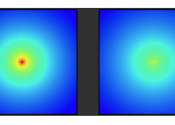High energy radiotherapy could 'paint' tumours to avoid harming healthy tissue
A radiotherapy technique which 'paints' tumors by targeting them precisely, and avoiding healthy tissue, has been devised in research led by the University of Strathclyde.









